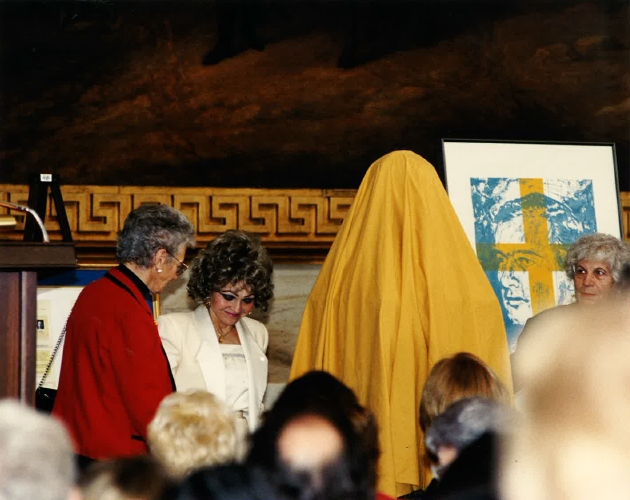MEDIA RELEASE
June 7, 2019
UNITED NATIONS DECLARES DETENTION OF ALEXEY PICHUGIN, RUSSIA’S LONGEST SERVING POLITICAL PRISONER, VIOLATES INTERNATIONAL LAW AND DEMANDS HIS IMMEDIATE RELEASE
Washington, D.C. – Today, international counsel for Russian political prisoner Alexey Pichugin has made public Opinion No. 89/2018 (Russia) of the United Nations Working Group on Arbitrary Detention (Working Group), which concludes that Pichugin is being detained in violation of international law and urges his immediate and unconditional release. In its decision, the Working Group states:
The deprivation of liberty of Alexey Pichugin, being in contravention of articles 2, 5, 7, 9, 10, 11 and 25 of the Universal Declaration of Human Rights and articles 2, 7, 9, 10, 14 and 26 of the International Covenant on Civil and Political Rights, is arbitrary and falls within categories I, III and V [of the Working Group’s Revised Methods of Work] . . . . The Working Group considers that, taking into account all the circumstances of the case, the appropriate remedy would be to release Mr. Pichugin immediately and accord him an enforceable right to compensation and other reparations, in accordance with international law.
The full text of opinion No. 89/2018 is available here.
Under Category I, the Working Group determined that there is no legal basis for Pichugin’s ongoing detention because authorities arrested him without a warrant, failed to inform him of the reasons for his arrest, and failed to inform him promptly of the charges against him. The Working Group also expressed “grave concern” at the allegations that Pichugin was held incommunicado for a period of time.
Under Category III, the Working Group concluded that the due process and fair trial violations in Pichugin’s case were “of such gravity” as to render his detention arbitrary. Specifically, the Working Group noted that the Government subjected him to extended pretrial detention; failed to respect his right to legal assistance; failed to give his counsel full access to the case file in time to adequately prepare his defense; failed to give him an adequate chance at trial to confront the witnesses and evidence against him or to present his witnesses and evidence to the court; closed one of his trials to the public without adequate explanation; and violated his presumption of innocence.
Importantly, under Category V, the Working Group found that the criminal charges against Pichugin were pretextual. The Working Group stated: “Pichugin has been arbitrarily deprived of his liberty because of his failure to cooperate with the authorities in the Government’s open persecution of Yukos . . . . The Working Group is thus of the view that the discrimination of Mr. Pichugin by the Government on the basis of his association with the Yukos company is the only plausible explanation for his arrest, detention, and imprisonment.”
Commenting on Pichugin’s case, Congressman Jim McGovern noted in an op-ed published today in The Hill:
“[Some political prisoners held by the Kremlin] are individuals who have done nothing more than follow their conscience, carry out their jobs or exercise their fundamental rights in peaceful ways.
“Take the case of Alexey Pichugin, identified . . . as Russia’s longest-serving political prisoner. Pichugin was a mid-level security manager who was targeted because he worked at Yukos, an oil company owned by Mikhail Khodorkovsky, an opponent of Russian President Vladimir Putin.
“The United Nations Working Group on Arbitrary Detention recently released a detailed opinion that finds that Pichugin has been arbitrarily detained for nearly 16 years and calls for his ‘immediate and unconditional release.’ President Putin will likely ignore the ruling – as he ignored two prior judgments of the European Court of Human Rights which held that trials to which Mr. Pichugin was subjected were unfair and violated due process and the presumption of innocence.”
In response to this decision, Pichugin’s international counsel, Jared Genser, stated:
“Today’s decision corroborates what my client has been saying for over 15 years – that he was convicted on fabricated charges in sham trials that violated his fundamental rights under both Russian and international law. Alexey is no criminal, but rather the last remaining hostage of Putin’s personal vendetta against the Yukos oil company and its outspoken former executives. We demand that Russia immediately and unconditionally release Pichugin and prosecute those responsible for his arbitrary arrest and lengthy detention.”
BACKGROUND ON THE CASE
Early in the morning of June 19, 2003, nearly two dozen armed security officials showed up on Pichugin’s doorstep. He was arrested without a warrant and taken to a detention center where he was repeatedly interrogated without a lawyer. He has been detained ever since.
At the time of his arrest, Pichugin was a mid-level security manager at Yukos, then one of Russia’s biggest oil companies. Yukos’ CEO, Mikhail Khodorkovsky, had been critical of Putin’s government and was funding opposition parties. Pichugin’s arrest was part of Putin’s persecution of Khodorkovsky and his business and civil society partners. In fact, Pichugin was repeatedly pressured to falsely implicate Khodorkovsky and Khodorkovsky’s partner, Leonid Nevzlin, in criminal activity.
Pichugin was initially charged with multiple counts of murder and attempted murder. However, during his trial, the prosecution presented no physical or direct evidence linking him to the crimes. Instead, they relied on the hearsay and double-hearsay testimony of Pichugin’s co-defendant and other previously-convicted felons. Moreover, some of the witnesses later admitted they were coerced into falsely implicating Pichugin. In addition, Pichugin was denied access to counsel, given limited access to case materials, prevented from cross-examining the key witness against him, and tried in closed proceedings.
Despite these due process violations, Pichugin was convicted and sentenced to 20 years’ imprisonment. Soon after, Pichugin was charged with additional counts of murder and attempted murder. After another trial marred by blatant due process violations – including restrictions on his ability to introduce exculpatory evidence and public statements by government officials affirming his guilt – he was convicted and sentenced to life imprisonment. Having already served over 15 years, he is now Russia’s longest serving political prisoner.
The European Court of Human Rights has held, in two separate judgments, that Pichugin’s detention violates international law. Moreover, the Parliamentary Assembly of the Council of Europe issued a resolution addressing Pichugin’s case, deeming it “a clear case of non-conformity with the rule of law.” Prominent non-governmental organizations such as Memorial Human Rights and the Raoul Wallenberg Centre for Human Rights have recognized Pichugin as a political prisoner and prisoner of conscience.
The UN Working Group on Arbitrary Detention is an independent and impartial body consisting of five members appointed by the UN Human Rights Council. The members are currently from Australia, Benin, Latvia, Mexico, and South Korea. The Working Group has the authority to investigate and issue legal opinions about alleged cases of arbitrary deprivation of liberty.
Contact:
Jared Genser
jgenser@perseus-strategies.com
+1 202 320 4135









